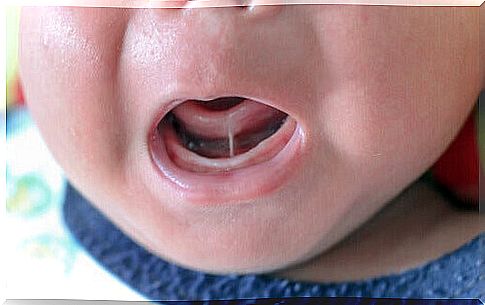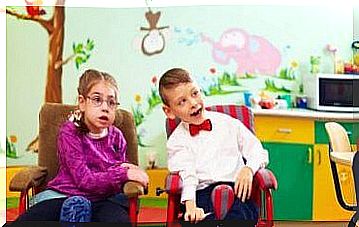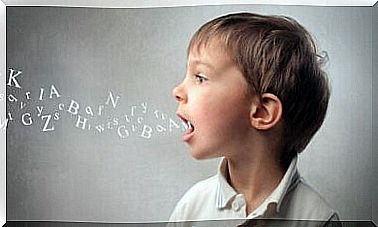Ankyloglossia Or Short Lingual Frenulum In Children – You Are Parents

What is ankyloglossia?
You have surely noticed that under your tongue you have a tissue which functions as a kind of “ligament” which connects your tongue to the lower cavity of your mouth. This is called the lingual frenulum, and its function is to hold the tongue in place. In other words, to avoid situations such as choking on our own tongue by swallowing it involuntarily while you are sleeping.
For example, in the case of breastfeeding, the frenulum allows a correct position of the tongue so that the child can suck the milk, without the tongue falling to the side or rolling. This would make it very difficult to feed through the lack of this small tissue.

The lingual frenulum is a useful tissue, but it is problematic when it is too short. Indeed, this causes difficulties in different measures. Depending on the case, the difficulties of normal use of the tongue, which we have already mentioned, are known as ankyloglossia.
Depending on the severity of ankyloglossia, it may interfere with the correct feeding of the lactating child. It can also cause poor development of speech skills, of course keeping other communication skills intact.
How Does Ankyloglossia Affect Breastfeeding?
It affects everyone involved in breastfeeding, ie the baby and the mother.
The implications for breastfed babies
Depending on the degree of ankyloglossia, the most common problems with a short lingual frenulum are those related to poor nutrition. We think, for example, of symptoms of anemia, light weight, bad mood, exhaustion of the baby, long breastfeeding sessions, among others.
However, not all infants have these problems. It depends on both the degree of ankyloglossia and the level of milk production of the mother.
Implications for the nursing mother
In the nursing mother, the problems are also indicated by overwork and the time it takes for the child to be able to feed.
Likewise, it can also have an impact on the psychological level for the mother. Indeed, it causes him anxiety and stress when breastfeeding. Or, feelings of guilt over decreased milk production (due to insufficient suction stimulus). Ultimately, this may involve giving up breastfeeding very early as a result of a mother’s decision.
How does ankyloglossia affect language?
As we grow older we begin to relate to the environment. Therefore, we initiate the natural process of language acquisition.

Children with ankyloglossia show difficulty in evoking certain sounds. It’s not precisely the articulation of words, which is quite common given their age. We refer to the difficulty of performing in speech the sound of certain letters.
This problem can be observed early in language acquisition. However, it is normal that, even with a short lingual frenum, the muscles of the tongue and their movements acclimatize to the restriction of the frenulum and do not interfere with intelligible speech execution.
A lower percentage of children with ankyloglossia will not show a great improvement in vocal skills. This implies that when communicating, their words seem incomprehensible. Or if not, they exhibit very poor speech execution.
In cases where ankyloglossia prevents normal verbal communication, the first option to treat ankyloglossia is through surgery, using lasers.
The tongue can be released to an appropriate extent, while still healing during the process. This avoids the use of anesthesia. This also allows the correction of ankyloglossia with this procedure in children of a few days old.









